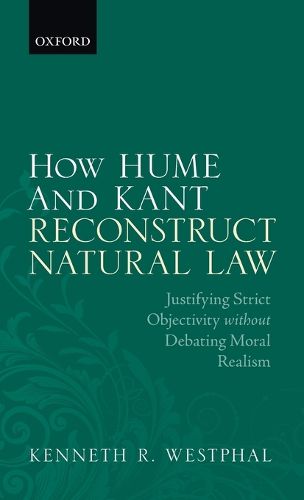Readings Newsletter
Become a Readings Member to make your shopping experience even easier.
Sign in or sign up for free!
You’re not far away from qualifying for FREE standard shipping within Australia
You’ve qualified for FREE standard shipping within Australia
The cart is loading…






Kenneth R. Westphal presents an original interpretation of Hume’s and Kant’s moral philosophies, the differences between which are prominent in current philosophical accounts. Westphal argues that focussing on these differences, however, occludes a decisive, shared achievement: a distinctive constructivist account of the basic principles of justice which justifies their strict objectivity without invoking moral realism nor moral anti- or irrealism. Westphal explores how Hume developed a kind of constructivism for basic property rights and for government, and how Kant greatly refined Hume’s construction of justice within his ‘metaphysical principles of justice’, whilst preserving the core model of Hume’s innovative account. Westphal contends that Hume’s and Kant’s constructivism avoids the conventionalist and relativist tendencies latent if not explicit in contemporary forms of moral constructivism.
$9.00 standard shipping within Australia
FREE standard shipping within Australia for orders over $100.00
Express & International shipping calculated at checkout
Kenneth R. Westphal presents an original interpretation of Hume’s and Kant’s moral philosophies, the differences between which are prominent in current philosophical accounts. Westphal argues that focussing on these differences, however, occludes a decisive, shared achievement: a distinctive constructivist account of the basic principles of justice which justifies their strict objectivity without invoking moral realism nor moral anti- or irrealism. Westphal explores how Hume developed a kind of constructivism for basic property rights and for government, and how Kant greatly refined Hume’s construction of justice within his ‘metaphysical principles of justice’, whilst preserving the core model of Hume’s innovative account. Westphal contends that Hume’s and Kant’s constructivism avoids the conventionalist and relativist tendencies latent if not explicit in contemporary forms of moral constructivism.